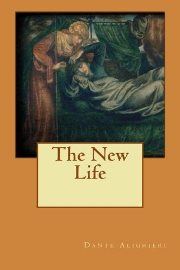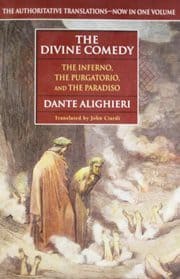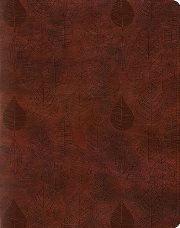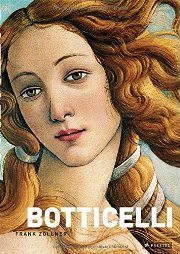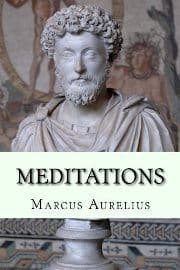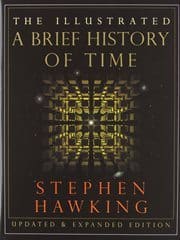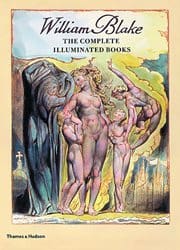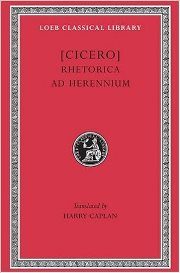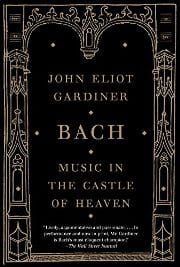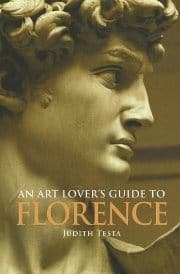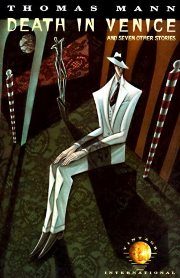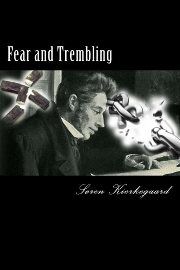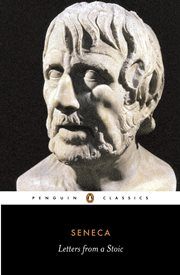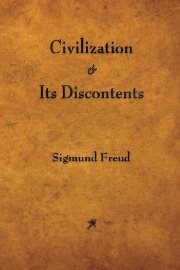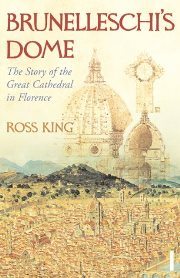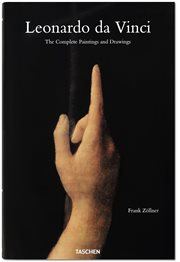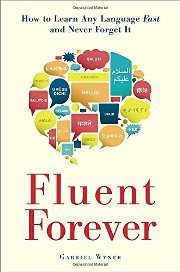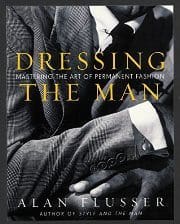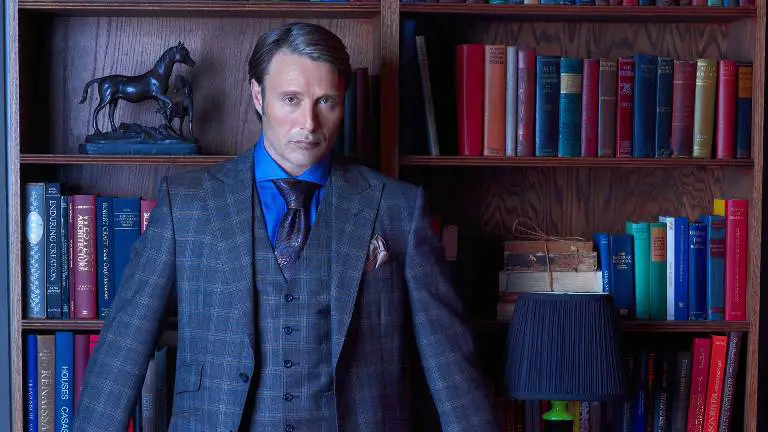
Have you ever wondered what would you find on Hannibal Lecter’s bookshelves?
Part of the authority and control he exerts comes from his vast knowledge and hours spent in his library. Except for eating rude people, Hannibal is a very charming and erudite person. That’s because, except for appetite for human flesh, he also has a high taste for all things bookish.
“I couldn’t live a week without a private library – indeed, I’d part with all my furniture and squat and sleep on the floor before I’d let go of the 1500 or so books I possess.” – H. P. Lovecraft
Become a learned person – just like Hannibal
I’m a fan of the original books by Thomas Harris, the movie trilogy with Anthony Hopkins, as well as the brilliant portrayal of the psychiatrist by Mads Mikkelsen in the Hannibal TV series. After consuming it all and doing some further research, I developed an intuition for the kinds of books Hannibal Lecter would read. The original works about the cannibal contain many direct literary references. The rest is a matter of conjecture. Now it’s time for you to devour the books from the list below. Hopefully, you’ll become a little bit more like Hannibal (in a good way).
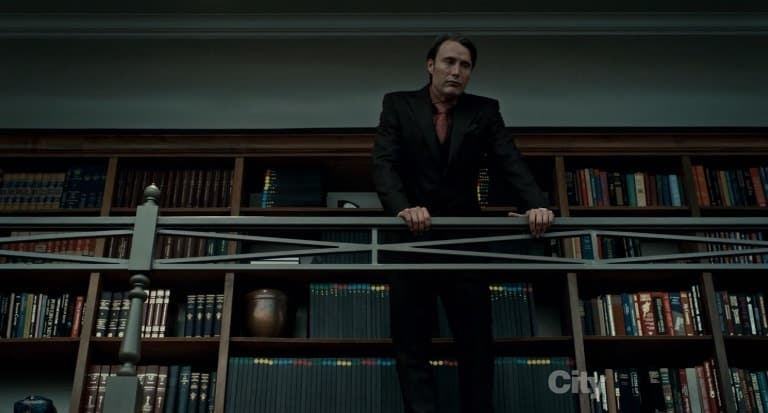
The Hannibal Lecter’s Library: 22 Books Recommended by the Doctor
1. Dante Alighieri – The New Life
The New Life is a prelude to Dante’s masterpiece, and it’s a beautiful expression of courtly love towards Beatrice Portinari. This work inspired the composition of “Vide Cor Meum” (“See My Heart”) by Patrick Cassidy. The text of the song is taken mostly from Chapter 3 (“To every single gentle heart and loving”) of the original work and you can hear it during one of the Florentine scenes from Hannibal and at the end of the Season 1 of the TV series. I’m quite sure Dr. Lecter would know La Vita Nuova by heart.
2. Dante Alighieri – The Divine Comedy
Lecter is an expert on Dante. In the Hannibal movie, you can see him giving a lecture on the subject. In Hannibal Season 3, he delivers an oration of Dante’s first sonnet in Medieval Italian. He’s fascinated by the cruelties of hell, as well as the sheer beauty of the classical language. In the Inferno, Dante and Virgil see Satan chewing Judas, Brutus, and Cassius – sinners who betrayed their masters. Similarly, Dr. Lecter hangs Commendatore Pazzi (bowels out) for the Pazzi Conspiracy which led to the assassination attempt on the Medici family in 1478 at the Duomo of Florence. Hannibal plays Satan and God at the same time – as God likes to punish the progeny of those who were against him: Exodus 20:5 “You shall not bow down to them or serve them, for I the Lord your God am a jealous God, visiting the iniquity of the fathers on the children to the third and the fourth generation of those who hate me.”
3. Various Authors – The Old Testament
Lecter has a profound knowledge of Dante, so he also must be an assiduous student of the Bible. He’s not particularly interested in the meekness and mildness of the New Testament, but his pulse quickens as he ponders Jehovah, the Big-Bad God of The Old Testament. In the TV series, he says: “Killing must feel good to God, too. He does it all the time, and are we not created in his image?” He’s making many references to God at his most vengeful, capricious, and jealous. If God can drop a church roof on dozens of his followers, then Lecter can get away with a few bites of the human flash, can’t he?
4. Frank Zöllner – Botticelli
Hannibal (or Dr. Fell, as he calls himself in Florence) is enamored by the Renaissance and his favorite painter of the period must be Botticelli. In the TV series, we see him as a young adult, sitting in the illustrious Uffizi gallery and taking sketches of “La Primavera”. Later, he reenacts the details of the painting (the one with Chloris and Zephyrus) by killing two people and decorating the scene accordingly. That’s actually how he earned the nickname “Il Mostro – the Monster of Florence”. If he was willing to go through all this gruesome art-making then he probably sports a copy of Zöllner’s authoritative book on Botticelli.
5. Marcus Aurelius – Meditations
In one of the scenes from The Silence of the Lambs, Lecter instructs Clarice to read Marcus Aurelius and “Of each particular thing, ask: ‘What is it in itself? What is its nature?’ What does he do, this man you seek?” This comes from Meditations, which are also filled with musings on death and its inevitability. There’s also a part about seeing the human body as a “vessel” and “a little bit of flesh” which perfectly plays to Hannibal’s narrative. Stoicism is based on being and doing “good”, but Hannibal has his twisted version of it.
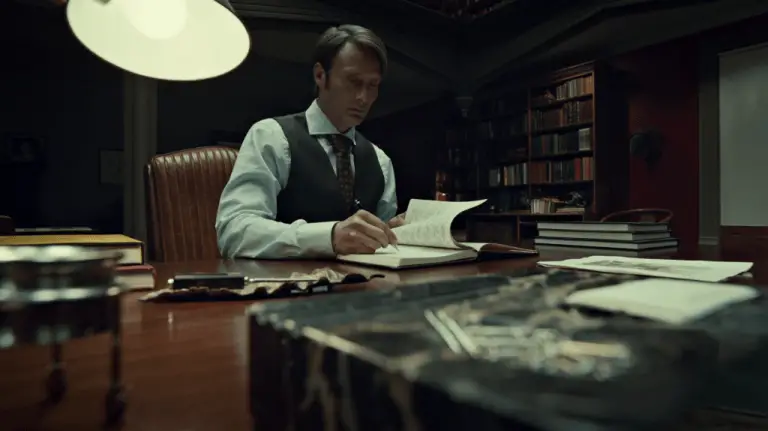
6. Stephen Hawking – A Brief History of Time
This one is related to the books and the TV series. In the book, Lecter watches a documentary based on Hawking’s book. He’s contemplating that with the newly discovered physical theories, his beloved sister might come back to life: “Mischa, eaten, to be whole again”. Then there is the teacup metaphor in the TV series. From Hawkins’ documentary, we learn that: „You may see a cup of tea fall off of a table and break into pieces on the floor. But you will never see the cup gather itself back together and jump back on the table… The increase of disorder, or entropy, is what distinguishes the past from the future.” This has a connection with many themes in the series but applies especially to the impossibility of Lecter’s reunion with Abigail and Will. Take a look at this beautiful “The teacup is broken” scene:
7. William Blake – The Complete Illuminated Books
There are many allusions to William Blake in Lecter’s universe. Of course, there’s Francis Dolarhyde, or The Red Dragon played by Ralph Fiennes in the movie, and Richard Armitage in the TV series. Dolarhyde is fascinated by Blake’s masterpiece, “Great Red Dragon and the Woman Clothed in the Sun”. He’s “becoming” the Dragon and this evil identity makes him murder many people. But he also has a soft spot for the woman clothed in the sun. That’s the interplay between good and evil in Blake’s philosophy which also fits perfectly into Lecter’s philosophy. Good and evil are not opposed to each other. Rather, they coexist and form a balanced universe. In Blake’s Jerusalem, we can find these lines: “When the Male & Female Appropriate Individuality, they become an Eternal Death. Hermaphroditic worshippers of a God of cruelty & law!”
8. Cicero – Rhetorica ad Herennium
From the Hannibal book, we learn that: “Like Giotto, Dr. Lecter has frescoed the walls of his mind.” Quite often, our favorite psychiatrist mentions the “Memory Palace” mnemonic technique he uses to store vast amounts of information. One of the earliest mentions of the “Memory Palace” can be found in the works of Cicero. Lecter can remember places, people, and conversations and use these memories to his ends. But when he’s locked up in the psychiatric ward, we learn that inhabits his palace and walks among its spacious rooms to admire beautiful works of art he’s been deprived of in real life.
9. John Eliot Gardiner – Bach: Music in the Castle of Heaven
In the famous scene from The Silence of the Lambs, you can notice that Lecter is a huge fan of Bach – especially the Goldberg Variations (named after the possible first performer of these compositions). In the TV series, we can also see Hannibal playing the beautiful aria on his antique harpsichord. As a sitting member of the Baltimore Philharmonic Orchestra’s board of directors, he must have Gardiner’s monumental work on Bach somewhere in his library.
10. Judith Testa – An Art Lover’s Guide to Florence
No one loves Florence and its art more than Hannibal. He spent a lot of time there as a young adult – mostly studying art, and language and occasionally killing people. Some twenty years later he comes back, eats Dr. Fell, assumes his identity, and becomes a curator of the Uffizi Gallery. Then he inhabits the 500-year-old Palazzo Capponi and continues his studies of the Renaissance. I think he would appreciate Testa’s work on Florence. And if you want to see all of Florence’s locations that appear in the books and movies, check out this article.
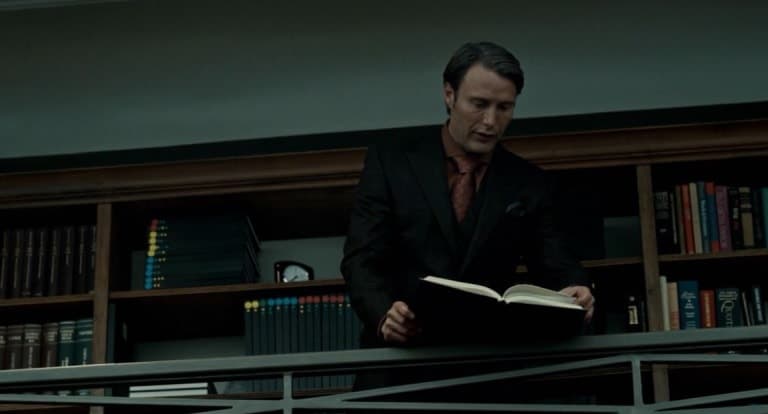
11. Thomas Mann – Death in Venice
Lecter appreciates all things Italian, so Thomas Mann’s book would surely capture his attention. Death in Venice tells the story of a great writer coming to Venice to find a cure for his writer’s block. Along the way, he becomes obsessed with the sights of a young boy, and then the whole city succumbs to Cholera. Mann’s work is deeply intertextual as it relates to ancient philosophy, Nietzsche, and Greek mythology – something Hannibal would enjoy.
12. Soren Kierkegaard – Fear and Trembling
In Fear and Trembling, Kierkegaard talks about ethics and especially ethical obligations towards society and God. He uses the story of Abraham who was ordered to kill Isaac to prove his loyalty to the Almighty. Kierkegaard argues that Abraham did the right thing by obeying God and that as individuals we should put our relationship with God (or the spiritual element) before the requirements of society. He also says that people who acquire true faith have to go through a stage of “infinite resignation”. This would be very amusing to Hannibal who doesn’t need God, and at one point says that “God is beyond measure in wanton malice, and matchless in his irony”.
13. Lucius Annaeus Seneca – Letters from a Stoic
If Lecter likes the Meditations, he reads Seneca. In his short but very powerful letter, the stoic philosopher tells us that we will soon perish into nothingness (maybe this very day). The only thing we can do is to do “good”, and arm ourselves with philosophy, to meet death with tranquility. As I said before, Hannibal has his version of morality where he considers “eating the rude” as making a positive contribution to the world. On the surface, he looks like a materialist but is not at all affected when he’s deprived of his possessions – something Stoics would approve of (yet they would object to his constant thirst for pleasure).
14. Sigmund Freud – Civilization and Its Discontents
As a psychiatrist, Dr. Lecter must be familiar with all the foundational works of psychology, and that includes Freud. Civilization and its Discontents is probably one of his favorite reads, as it paints a stark picture of human society. Freud argues that individuals in modern civilization are uneasy because they are bound by cultural rules and deprived of freedom, and the possibility of killing, raping, and pillaging – the natural human instincts. Freud says: “The commandment, ‘Love thy neighbor as thyself’, is the strongest defense against human aggressiveness and an excellent example of the unpsychological [expectations] of the cultural super-ego. The commandment is impossible to fulfill.” We could assume that by killing, Hannibal asserts his right to personal freedom and satisfaction by releasing himself from the shackles of the culture.
15. Hugh Johnson, Jancis Robinson – The World Atlas of Wine
Lecter possesses amazing olfactory abilities. He’s able to smell Graham’s Old Spice and Starling’s L’Air du Temps from a considerable distance. He’s also a wine connoisseur par excellence and in The Silence of the Lambs confesses that: “A census taker once tried to test me. I ate his liver with some fava beans and a nice chianti”. (This is probably the most iconic villain quote of all time and it also contains a hidden meaning. I’m sure that in his beautiful kitchen, there’s more than one book on wine.
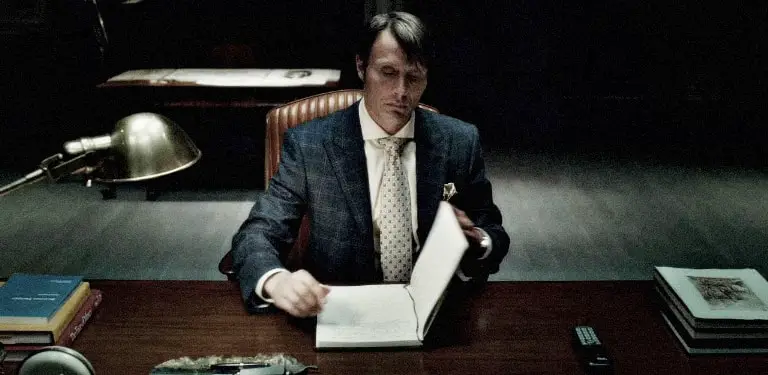
16. Karen Page, Andrew Dornenburg – The Flavor Bible: The Essential Guide to Culinary Creativity
Hannibal is a master chef and in the TV show, he frequently tantalizes his guests with his exquisite culinary skills. He has a vast collection of favorite recipes but I’m sure he has a considerable number of cookbooks as well. (In The Silence of the Lambs, you can even see a copy of the Bon Appétit Magazine on his table). In the fall of 2016, we are expecting the release of Lecter’s book of recipes – Feeding Hannibal: A Connoisseur’s Cookbook. Unfortunately, it will not include human ingredients.
17. Ross King – Brunelleschi’s Dome: The Story of the Great Cathedral in Florence
When Starling and Lecter first meet in the Silence of The Lambs, she asks: “Did you do all these drawings, Doctor?” To which he responds: “Ah. That is the Duomo seen from the Belvedere. Do you know Florence?” (A piece of trivia: Starling later finds Buffalo Bill living in Belvedere, Ohio.) Lecter knew The City of Lilies very well and was able to draw the famous cathedral from the information stored in his “memory palace.” He’s fascinated by Florence’s architecture, and I’m sure he would read a book with the full story of Cattedrale di Santa Maria del Fiore.
18. Frank Zöllner – Leonardo da Vinci: Complete Paintings and Drawings
Lecter has an amazing eye for detail, and his drawings got him an internship at Johns Hopkins Medical Center in Baltimore, from which he later graduated with a degree in medicine. Moreover, in The Silence of the Lambs, you can see Hannibal’s expert delineations of Florence and Clarice Starling. In the TV show, we see him sketching, among other things, the Primavera by Botticelli. It’s reasonable to assume that as a classicist, and a student of medicine he would have a whole collection of works by the Renaissance genius (and probably his famous notebooks too).
19. Gabriel Wyner – Fluent Forever: How to Learn Any Language Fast and Never Forget It
From the materials related to our psychiatrist we learn that except for his native Lithuanian, he’s also fluent in a variety of different languages including Italian, German, Russian, and Polish (he must be the first foreigner ever to be fluent in my native tongue), French, English and Spanish, and even some Japanese. He learned all with the help of his staggering intellect, and by traveling widely, but he also had to pick up a system for mastering new languages. The book by Gabriel Wyner who speaks six languages fluently might prove to be a solid foundation for this kind of system.
20. Emily Henderson, Angelin Borsics – Styled: Secrets for Arranging Rooms, from Tabletops to Bookshelves
Among his many skills, Lecter also has a knack for interior design. In the movies, we don’t see his chambers, but in the TV show, many scenes take place at Hannibal’s lavishly decorated place in Baltimore. His imposing family house which keeps Lecter’s dark secrets is done mostly in the European style. Except for having a natural aesthetic taste, he probably read at least one good book on interior design.
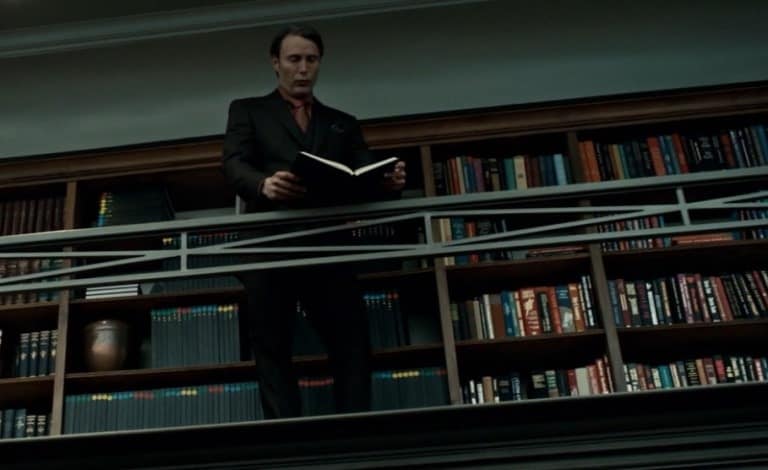
21. Alan Flusser – Dressing the Man: Mastering the Art of Permanent Fashion
In the movies and especially in the TV show you can see Hannibal dressed to kill every single time. I suspect it’s not only because of the love of beauty and all things Italian but also because an exquisite suit helps to create an air of stately authority among others. Thomas Wolfe, the writer, famously dons his elaborate white suits to “disarm” people. Lecter uses the same strategy, and he probably owns a book on permanent fashion.
22. Leuchtturm Medium Notebook & S.T. Dupont Défi Pen
On the web, you can find many discussions about the equipment used by Hannibal in the show. You can find anything from his kitchen knives to the coffee maker. But one thing that makes him distinctive in the bookish arena is his stationary. Lecter owns a great deal of elegant black notebooks in which he stores notes about his patients (he uses an organizing method developed by Stanley Kubrick). And for writing, he flashes a $180 S.T. Dupont Défi pen. What are the other books you think Hannibal would enjoy? Next up, you may want to explore the ultimate guide to book publishing companies.
Hey there, welcome to my blog! I'm a full-time entrepreneur building two companies, a digital marketer, and a content creator with 10+ years of experience. I started RafalReyzer.com to provide you with great tools and strategies you can use to become a proficient digital marketer and achieve freedom through online creativity. My site is a one-stop shop for digital marketers, and content enthusiasts who want to be independent, earn more money, and create beautiful things. Explore my journey here, and don't forget to get in touch if you need help with digital marketing.

